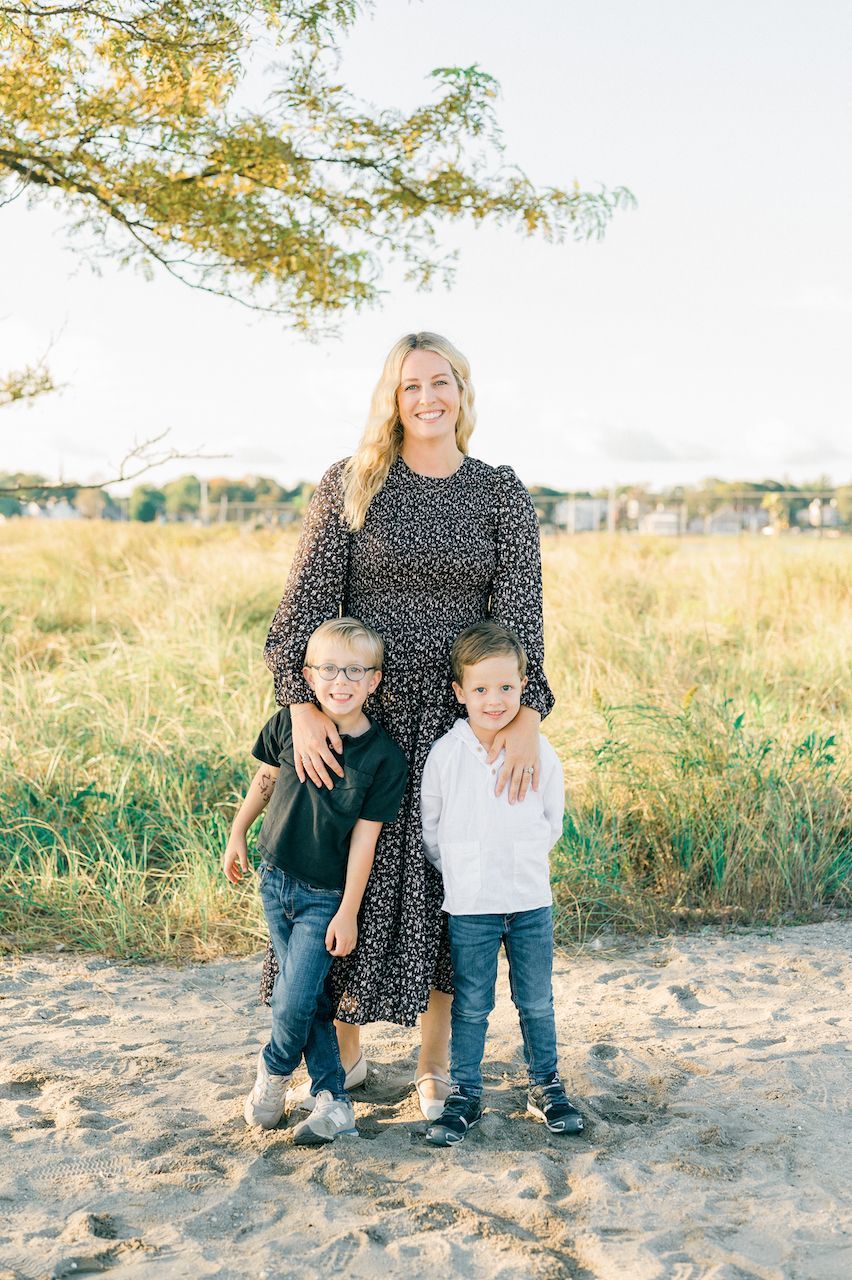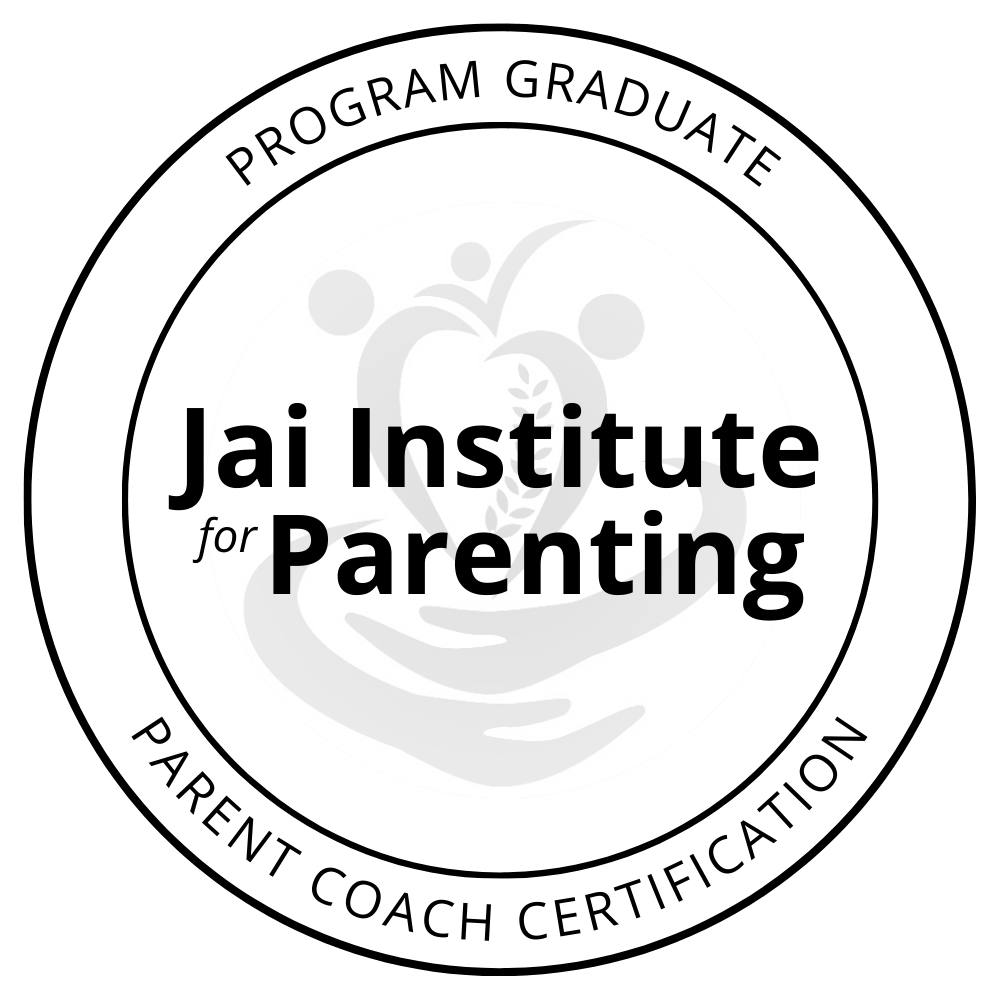Blog
Science Meets Parenthood

If you've ever watched your child completely unravel because their sandwich was cut the "wrong" way, you're not alone—and there's a good reason for it. Young children aren't being dramatic or manipulative; their brains are still under construction. One of the last parts of the brain to fully develop is the prefrontal cortex—the area responsible for logic, reasoning, impulse control, planning, and emotional regulation. In fact, this part of the brain doesn’t finish developing until a person’s mid-20s. So, what does that mean for your toddler or preschooler? It means that when they’re overwhelmed, tired, hungry, or frustrated, they don’t yet have the neurological wiring to pause, self-soothe, or talk it through. Instead, they melt down. Rather than seeing a meltdown as misbehavior, it can help to view it as a sign that your child is overwhelmed and needs support. In moments of dysregulation, children rely on the adults around them—whose prefrontal cortex is developed—to help co-regulate and guide them back to a sense of safety. This doesn’t mean there are no boundaries. It means we hold boundaries with compassion. When we offer connection during their hardest moments, we’re actually teaching the skills that their brain is still developing. So the next time your child loses it over the blue cup instead of the red one, take a breath. Their little brain is doing its best—and you're helping to build it, one calm connection at a time.

If your child clung to you during kindergarten orientation, refused to make eye contact, or stayed silent while others eagerly explored the classroom… I want you to know: you are not alone — and your child is not broken. And I have been in your shoes! Highly sensitive children feel more deeply, notice more detail, and often need more time to process new environments. That doesn't mean they're not ready — it just means they need to approach big transitions like this in their own way. As a parent coach, researcher, and mom to a highly sensitive child myself, I want to offer you a few gentle, grounded ways to support your child through moments like these — without pushing, rushing, or labeling them. 💛 1. Validate Their Feelings Start with connection. Say things like: “It’s okay to feel nervous. New places and people can be a lot.” When a child hears that their big feelings are normal and accepted, they begin to relax — because they know they’re not alone in them. 🤝 2. Be Their Safe Base It’s okay to stay close. You’re not “coddling” them — you’re co-regulating. When a child feels your calm, grounded presence, it helps regulate their overwhelmed nervous system. If they need to sit in your lap, hold your hand, or quietly observe from the sidelines — let that be okay. 🙊 3. Avoid Labeling Them as “Shy” This one is tough, especially when other adults comment. But calling a child “shy” can become a fixed identity that they internalize. Instead, try saying: “He likes to observe before jumping in,” or “She’s taking it all in right now.” These phrases leave room for growth and honor your child’s temperament without shame. 📖 4. Prepare with a Social Story Before the next visit, help them visualize what to expect. You can: Create a simple picture book about kindergarten orientation. Role-play the experience with stuffed animals. Walk them through the schedule: “First we’ll hang up your backpack, then we’ll meet your teacher…” For sensitive kids, predictability equals safety. 🧸 5. Look for Anchors of Comfort Point out familiar toys or introduce them to one peer. These moments build micro-connections that increase their sense of belonging. 👩🏫 6. Connect with the Teacher Privately Let the teacher know that your child may need time to warm up. A sensitive child will thrive when a trusted adult offers quiet warmth without pressure. Sometimes, just knowing a teacher is “in on it” can make all the difference. 🚗 7. Reflect Gently Afterwards On the way home, resist the urge to quiz. Instead, try: “I noticed you looking at the art table — what did you think?” Stay curious, not evaluative. This keeps the door open for future connection. 🌱 Final Thought: This Is a Long Game It’s not about how “well” your child did at orientation. It’s about helping them feel safe, seen, and supported — so they can build confidence at their own pace. Highly sensitive kids are deeply intuitive, thoughtful, and empathetic. With a little extra patience and a lot of connection, they can absolutely thrive. And please remember to offer yourself grace and kindness. If you walked away feeling disappointed or embarrassed, normalize these feelings and try to name them without judgement. It's okay to grieve if today did not look exactly as you had hoped. You’ve got this — and so do they. 💛

Lately, I’ve been doing something I know better than to do. I’m about to have a baby any day now. And as I prepare to welcome a new little one into our family, I’ve found myself loosening up on boundaries with my older kids. I tell myself it’s because this is a big transition for them. That they’re going through a lot. That they need extra grace. And while all of that is true… it’s also true that the looser my boundaries get, the worse their behavior becomes. And I get it. Because deep down, I’ve been trying to make them happy. I’ve been trying to ease their discomfort with extra leniency, more yeses than I normally give, and fewer firm limits than they’re used to. It’s coming from a place of love—and guilt, if I’m honest. I know their world is shifting, and I want so badly to make the transition smoother for them. But here’s the thing I know as a mom and a parent coach: It’s not my job to make my kids happy. It’s my job to help them feel safe. And safety—emotional and relational safety—comes from knowing where the boundaries are. It comes from a parent who says: I see you, I love you, and I’m going to hold this limit because I care about you. Kids want boundaries, even when they fight them. Boundaries say, “You don’t have to be in charge. You can trust me to take care of what’s too big for you to handle.” That kind of consistency is a foundation for emotional security—not momentary happiness. When we let go of boundaries to avoid upsetting our kids, we unintentionally hand them too much power—and that can feel scary to them. They don’t need more control. They need more connection, more empathy, and yes, more limits. Of course transitions matter. Of course kids need compassion when things are hard. But compassion and boundaries are not opposites—they’re a team. We can meet our kids with tenderness and hold firm lines. We can validate their feelings and say no. We can be nurturing and in charge. This week, I reminded myself of all of this as I watched my older kids’ behavior unravel. I took a deep breath, re-established some of the boundaries I had let slide, and held them gently but consistently. And guess what? Things started to shift. Not perfectly—because they’re still adjusting, and I’m still pregnant and exhausted—but the emotional tone of our home changed almost immediately. The chaos dialed down. Their anxiety seemed to settle. We started feeling more connected again. Because when kids feel like someone else is in charge, they can finally relax. So if you’re in a season where your kids are struggling and you’re tempted to over-compensate by giving in more often than you normally would—take it from me: You’re not failing them by holding boundaries. You’re anchoring them. And anchoring is what they really need.

If you’ve ever said, “If you don’t stop right now, no screen time for a week!” or “Go to your room—I don’t want to see you until you can behave!”—you’re not alone. We’ve all been there. Parenting is hard, and in moments of stress, punishment and threats can feel like the only tools we have to regain control. But here’s the truth: punishment and threats might stop behavior in the short term, but they don’t build the long-term skills our kids actually need. And they certainly don’t create the kind of connection that makes parenting feel joyful and effective. Let’s break down why. 1. They Work Fast, But Not Well Punishments and threats can stop a behavior temporarily—because they trigger fear. But fear isn’t the same as learning. Kids might obey in the moment, but they’re not actually learning why their behavior was a problem or how to do better next time. That means you’ll probably have to keep punishing… over and over again. 2. They Undermine Trust When kids are punished or threatened, especially over time, they can start to feel unsafe—emotionally, and sometimes physically. That doesn’t mean they stop misbehaving. It often means they get sneakier, more withdrawn, or more reactive. Connection is the foundation of cooperation. When kids trust us, they’re more likely to follow our lead—not out of fear, but out of respect and security. 3. They Don’t Teach Emotional Regulation Our job as parents isn’t to control our kids—it’s to teach them how to control themselves. Punishment doesn’t teach that. In fact, it often adds shame, fear, or confusion, which dysregulates their nervous system even more. To build skills like emotional regulation, impulse control, and empathy, kids need co-regulation , not isolation or fear. 4. They Can Damage Self-Worth Repeated punishment—especially when it’s harsh or shaming—can lead kids to internalize the idea that they are bad, not just their behavior. Over time, this can chip away at self-esteem and create patterns of anxiety, defiance, or people-pleasing. We want our kids to believe they can make mistakes and make it right. That’s how resilience is built. So What Does Work? Here’s the good news: you don’t need threats or punishment to guide your child. There are connection-based, evidence-backed strategies that actually help kids grow into respectful, emotionally intelligent humans. A few that I teach in coaching: Set clear, respectful boundaries (without yelling or bribes) Use natural and logical consequences that make sense Stay calm and co-regulate when emotions are high Get curious about the why behind behavior (because all behavior is communication) Repair after ruptures to model accountability and connection You’re Not Failing—You’re Learning If you’ve used punishment or threats in the past, this isn’t about shame. It’s about growth. Most of us were raised with these tools, and we’re doing the work of learning a different way. And that takes courage. There’s a learning curve—but you don’t have to do it alone. This is exactly what I help parents with: making the shift from control to connection, from chaos to calm.

I didn’t set out to become a parent coach. Like so many of you, I started this journey knee-deep in diapers, sleep deprivation, and Google searches at 2 a.m. trying to figure out if my child’s behavior was “normal.” I was doing my best, but I often felt like I was failing. I loved my kids more than anything—but that didn’t always make parenting feel joyful. And that’s where it started. I had the academic background—years of studying child development, health, psychology, and neurobiology. I knew what the research said about child behavior, emotional regulation, and the importance of connection. But in the thick of parenting, theory didn’t always translate into practice. I realized I needed to bridge that gap—not just for myself, but for other parents, too. Becoming a parent coach wasn’t just a career move. It was a calling. I knew that so many families were doing their best with what they had—but still feeling overwhelmed and exhausted. I saw parents who wanted to show up with patience and presence but were weighed down by guilt, stress, and unrealistic expectations. And I knew there was a better way. I became a parent coach because I believe parenting can feel joyful—not all the time, but in real, meaningful ways. Not the picture-perfect Instagram version, but the deep joy that comes from connection, understanding, and growth (for both parent and child). Here’s what I’ve learned and now help others to see: You’re not failing; you’re figuring it out. Parenting isn’t about getting it “right.” It’s about learning, adjusting, and showing up again and again. Your child doesn’t need perfection—they need you. Present, attuned, and willing to grow. That’s more than enough. There is joy in the mess. Even when it’s hard, there are moments of connection that make it all worthwhile. My work is about helping parents notice and nurture those moments. Through coaching, I get to walk alongside families as they untangle the stress and rediscover what really matters. I get to see confidence return to overwhelmed parents. I get to witness joy bloom where there was once only tension. And every time, I’m reminded why I do this work. So if you’re reading this and feeling like you’ve lost the joy in parenting—please know you’re not alone. You’re in the middle of a story that’s still unfolding. And I’d be honored to help you find the joy again.

